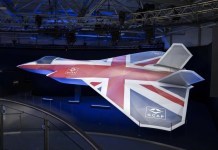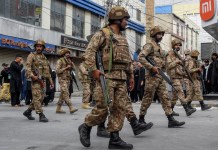With tensions soaring between two Eastern Mediterranean neighbours, Greece and Turkey, over the Argean Sea, North Atlantic Treaty Organization (NATO) has found itself in a dilemma. What happens if a conflict breaks out between two member states of the military alliance? Will that be the end of NATO?
Athens and Ankara have been at loggerheads and encounters between Greek and Turkish fighter jets have become common in the air. Both the countries have laid claim over access to natural resources, namely potential gas and oil deposits under the seabed of the Mediterranean.
The tensions between the nations have peaked with both threatening to a military attack. Another NATO and European Union (EU) member, France has been at the forefront of lending support to Greece by equipping them with 18 Dassault Rafale fighter jets to fight their Mediterranean neighbours.
According to reports, Ankara redeployed armoured personnel carriers from the Syrian border to the one it shares with Greece.
Turkey deploys tanks to Greece border from Syrian border, Turkish private news agency İHA claims.
Approximately 40 tanks. pic.twitter.com/nnDrEegXsj
— Ragıp Soylu (@ragipsoylu) September 5, 2020
Greek local media reported that the French defence website revealed the agreement of assistance of the French Armed Forces in Greece that stated that in “any critical case with Turkey” will activate Article 42-7 of the EU Treaty, which clearly and unequivocally states that the Member States must “assist in any way, (even with armed force) if another country becomes the subject of “armed aggression on its territory”. It further stated that this text isn’t binding to all the member states, especially those who are “neutral.”
“Experts say that this article may not have automatic force, in contrast to NATO Article 5, but stress that it does not specify the means to be used in the event of aggression, especially in what it describes as “assistance” which can easily be military intervention or the provision of military equipment,” noted the tabloid.

Analysts argued that Turkish President Recep Tayyip Erdogan has become hostile to not just Greece and the US, but also its other EU members. Cyprus has also accused Turkey of breaching its sovereignty by drilling in their waters.
Erdogan issued a warning for Greece saying “they’re either going to understand the language of politics and diplomacy or in the field with painful experiences,” he said on Saturday. “If Greece pulls the trigger, it will be the end of NATO,” said Turkish Admiral T. Gurdeniz, implying that Turkey would withdraw from the military alliance, reported Pentapostagma.
Wall Street Journal (WSJ) in its editorial has blamed Ankara for fuelling the conflict with “nationalist rhetoric and bad behaviour.” It further said that the Erdogan government is using the advantages of relations with the West, began a rapprochement with Russia.
This is evident with the procurement of the Russian-made S-400s by Turkey. Last year, Erdogan had stated that Turkey may buy Russian-made Su-35 and Su-57 fighter jets instead of US-made F-35 fighters.
“For this relationship, Ankara is said to be asking for some kind of reward, blackmailing and intimidating another allied country such as Greece in this way, demanding the tolerance of the United States,” WSJ stated.
NATO has taken steps to calm the tensions by offering to mediate between the two foes. Representatives from Greece and Turkey are due to meet at NATO headquarters in Brussels on Tuesday for technical military talks aimed at de-escalating tension in the eastern Mediterranean, diplomatic sources in Athens said.




